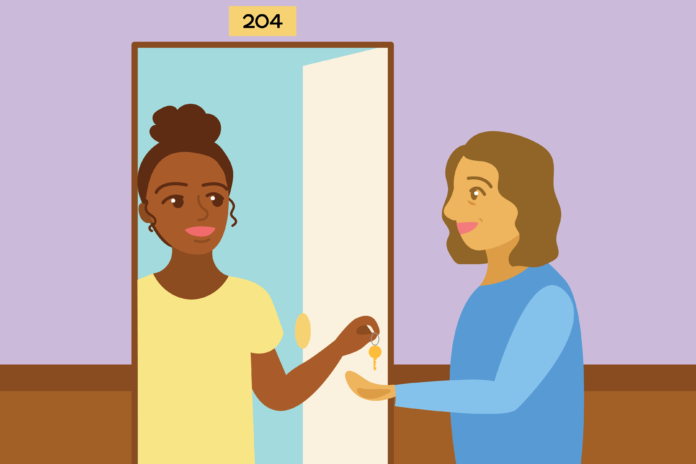More than 61 permanent transitions to housing have been achieved through the program
Project Roomkey, a partnership between Human Services Agency and Yolo County Health on the local level, has provided 49,244 nights of shelter to around 533 members of the homeless population between March 16 and Nov. 17, averaging to 92 nights per individual, according to a press release published by Yolo County on Nov. 20.
“While Project Roomkey was never intended to be a permanent housing solution, the program’s increased stability and access to case management services has resulted in over 61 permanent housing transitions to date […],” the press release reads.
Deputy Director of Police Services Deanne Machado said via email that Project Roomkey has helped the local community “[…] by temporarily providing shelter to the community’s most vulnerable, unhoused population.”
“In the absence of Project Roomkey, these individuals (many of whom are immunocompromised) would have likely continued to live unsheltered on our streets or in a congregate setting of some kind, both of which are particularly hazardous during a pandemic for this population,” Machado said via email.
Homeless Program Coordinator at Yolo County Health and Human Services Nadia Waggener further explained how Project Roomkey has helped the community.
“When we house our most vulnerable neighbors, the impact can be felt in our streets, in our hospitals, and in our bottom line,” Waggener said via email. “Project Roomkey (PRK) allows our community to live our Yolo values: serving our elderly and disabled neighbors while creating a safer community. PRK has moved people off the streets and into dignified living conditions where our seniors and disabled clients can receive medical care, case management and rest.”
Allowing people to access stable, safe living conditions also reduces calls for emergency services and the strain on hospitals during the COVID-19 pandemic, Waggener explained.
District Two Yolo County Supervisor Don Saylor noted that Project Roomkey has also allowed California to provisionally satisfy the long-term aim of “functional zero” in relation to homelessness, which means that there were more spaces available than people without houses.
“Yolo County has long supported the “housing first” model in serving our unhoused community members,” Saylor said via email. “This model focuses first on stable housing, then provides wraparound services to help clients address their needs, such as applying for benefits and enrolling in treatment services.”
Saylor explained that the housing first model was also used in 2014 in the Bridge to Housing Program, which provided temporary housing to 53 people in a motel and services to support them. Ultimately, the program was able to find permanent housing for most of them.
“We have demonstrated that supportive housing programs can help unhoused individuals transfer to permanent housing and improve their overall quality of life,” Saylor said.
While participating in Project Roomkey, individuals meet with case workers to decide the next steps forward, such as applying for low-income units, subsidies and affordable apartments, all of which may have long waiting lists.
“For some, this may involve reunification with family and for others this may mean some sort of independent living setup,” Machado said. “There are some subsidized housing options in Davis, and several former Project Roomkey clients have secured their own apartments through subsidies.”
Machado said that some individuals “[…] return to homelessness due to a variety of factors,” while others enter the Davis Emergency Shelter Program run by the Interfaith Rotating Winter shelter after leaving the program. Others also go to Room and Boards or to homeless shelters such as Davis Community Meals/Housing.
Most elderly clients live on a fixed income—which averages around $910 monthly—making it necessary to find apartments under $1,000, according to Waggener. Clients depend on subsidy programs through Yolo County Housing and other low-income housing options.
“Our staff is working to connect as many current PRK clients to affordable or subsidized apartments before the end of the program,” Waggener said.
Yolo County and its cities are currently working to determine long-term options and what can be done next, such as a new permanent shelter in Woodland, according to the press release.
“Project Roomkey is an example of the ‘Yolo-way,’ serving the people of Yolo County through a collaborative partnership among public, private, and non-profit agencies,” Saylor said. “I’m grateful to the team of staff and volunteers who helped serve our unhoused community members in this capacity.”
Written by: Shraddha Jhingan — city@theaggie.org





